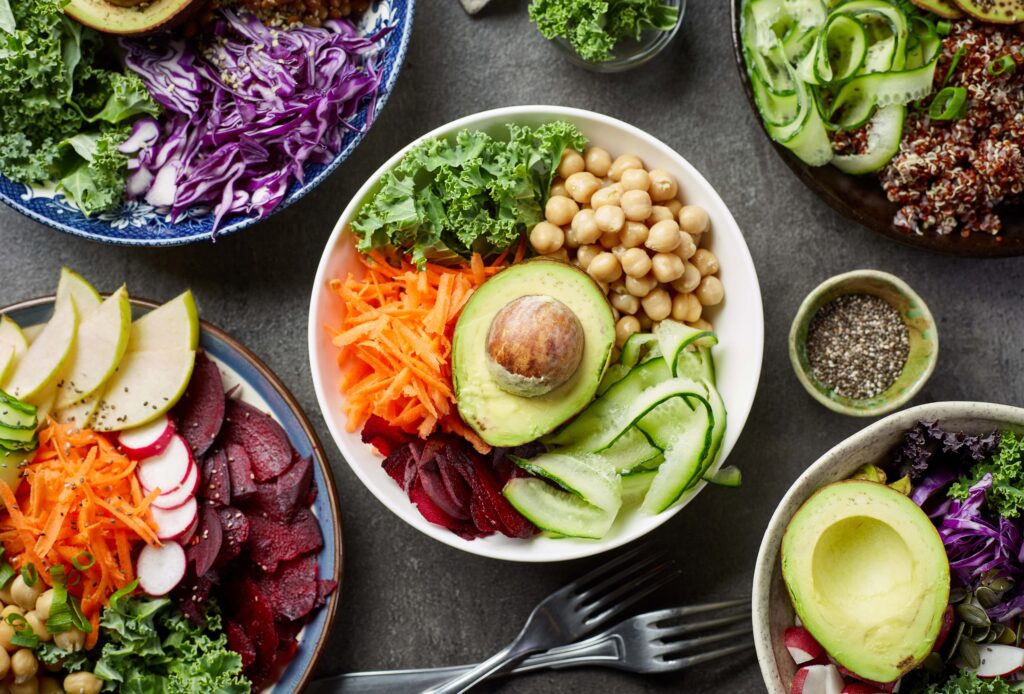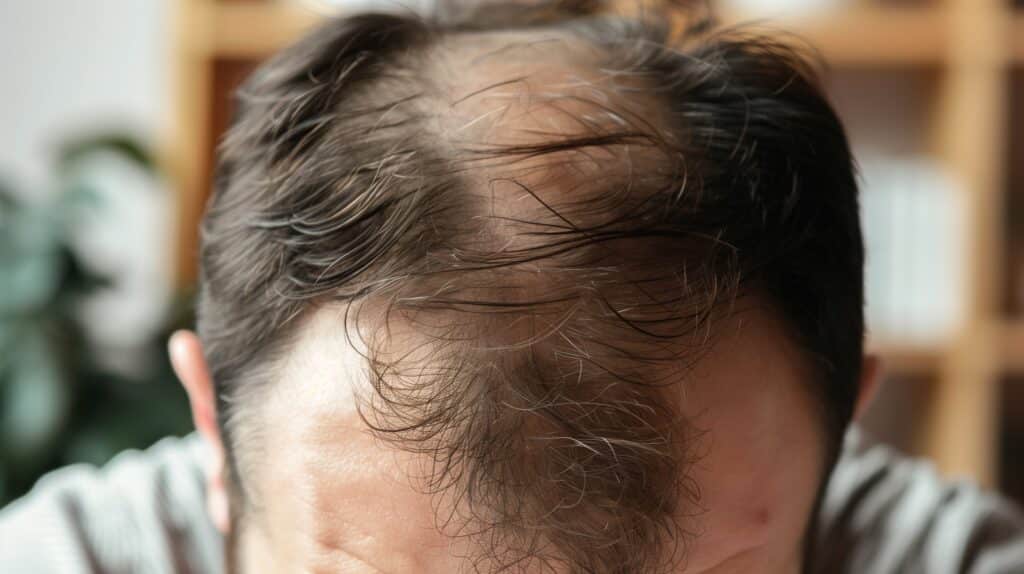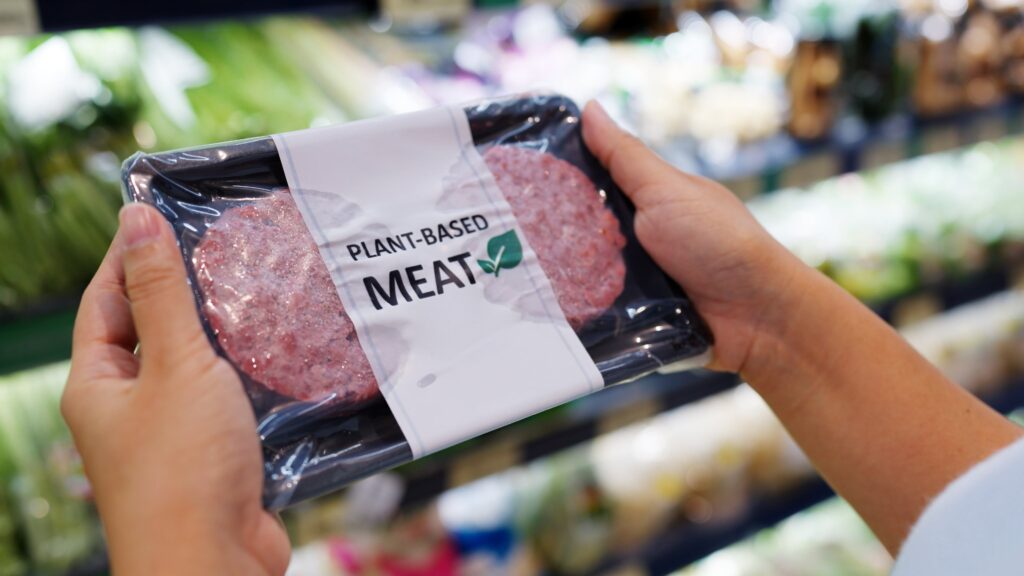Veganism has become a very popular dietary choice for health-concerned populations. A plant based diet can improve cardiac health, reduce blood pressure, and sometimes lower cancer risk. Yet a sudden change in eating habits can cause some health concerns. If you are not eating a balanced diet, you might not get enough vitamins, minerals, and nutrients from your food. One of the main side effects of this deficiency is vegan hair loss.
You can mediate your hair loss through supplements, topical treatments, or affordable hair transplants. In this article, we look at how diet can affect your hair, what nutrient deficiency you might face, and how to better care for your hair. So, does a vegan diet cause hair loss? Let’s find out:
- What deficiencies might cause hair loss on a vegan diet
- What proteins and fats you can consume on a vegan diet
- What to do if you are experiencing unusual hair loss on this diet.
How Does a Vegan diet Affect Hair Loss?

Our hair is usually divided into Hair follicles and hair shafts. The latter is the part we can see, touch, and style. The hair follicle is under our skin. The hair shaft is not easily damaged. However, the hair follicle is very sensitive, especially to dietary changes. Follicle cells can divide fast. As a result, they also grow and die very quickly. Therefore, they are highly affected by any nutritional deficiency.
The follicles need proteins, vitamins, and minerals for healthy growth. These vitamins and minerals may include vitamins B, C, E, iron, zinc, etc. The nutrients can help healthy hair growth. You might also have a weakened immune system from nutrient deficiency. If you are suffering from any deficiency, your hair may be the one to suffer.
Nutritional Deficiency and Vegan Hair Loss

Iron
Iron deficiency can be a widespread phenomenon in vegans. Sometimes, low iron levels can reduce the risk of chronic heart disease. However, iron deficiency can reduce your body’s red blood cells. Low iron also lowers the hemoglobin percentage in your blood.
The hemoglobin carries oxygen from the lungs to your body. Hair follicles cannot get enough oxygen or produce red blood cells without enough iron. Thus, the hair follicles cannot divide and grow, leading to vegan hair loss.
Iron Sources
There is a high availability of iron in meat. You can get up to 20% absorption of iron from meat. However, plant based sources of iron typically offer only 1-9%. To increase your iron levels, you can consume tofu, spinach, kale, lentils, chickpeas, pumpkin seeds, and even dark chocolate.
Protein
Protein deficiency is the central cause of vegan hair loss. Without sufficient proteins, our body mainly focuses on essential functions, not hair growth. It can lead to hair breakage and hair loss. Protein deficiency pushes the hair follicles into the resting phase and stops hair growth.
Source of Protein
Plant based proteins can be a great alternative. Lentils, quinoa, soy products, etc. are great plant based proteins.
Zinc Deficiencies
Some plant based foods, such as whole grains, seeds, legumes, etc., contain phytic acid. It can act as an anti-nutrient and prevent the absorption of zinc. However, zinc is essential for repairing damaged hair. It helps to keep the oil glands of our scalp functioning correctly.
Zinc Sources
On a vegan diet, you should consume more plant based zinc. Zinc supplements are an excellent way to achieve this level.
Lysine Deficiency
Lysine is an essential amino acid. Our hair doesn’t make lysine. However, lysine helps in the absorption of iron and even collagen. Collagen is an integral part of our hair structure. A lysine deficiency can lead to weakened hair health.
Lysine Source
Pistachios, tofu, spirulina, lentils, and chickpeas are excellent sources of lysine. You can also supplement lysine to combat deficiency.
Omega3 Fatty Acid Deficiency
Omega3 fatty acids help hair elasticity and growth. Without enough Omega3, your scalp can get dry and flaky. Your hair might be brittle and break down quickly. As a vegan, you actually need more omega-3s than carnivores. Only a few select vegan foods contain enough percentage of omega-3s, DHA, and EPA (other forms of omega-3).
Omega3 Fatty Acid Sources
You can get Omega3 fatty acids from different plant based foods—for example, flaxseeds, chia seeds, walnuts, and hemp seeds.
Vitamin B12 Deficiency
Vitamin B12, or cobalamin, is one of the most essential vitamins. It helps to support oxygen delivery to hair follicles. Vitamin B12 also helps to support nerve health and the synthesis of DNA. Disruption of any of these processes can lead to increased hair loss.
Vitamin B12 sources
You can supplement vitamin B12 every day for healthy hair. However, make sure you’re taking the right kind of vitamin B12. You can take methylcobalamin or cyanocobalamin, depending on your preference.
Biotin Deficiency
Biotin is also known as Vitamin B7. It helps to make keratin the main protein in our hair. Biotin also supports protein and fat metabolism for healthy hair. Our body can make some biotin on a plant based diet, but not all of it. Biotin deficiency can disrupt our hair growth cycle. It can lead to increased shedding and hair painting.
Biotin Sources
Nutritional yeast is an excellent source of biotin. You can also get biotin in sweet potatoes, peanuts, cauliflower, and almonds. Biotin supplements are also a great way to consume biotin.
Iodine Deficiency
Iodine is an essential component of the thyroid gland. It helps produce thyroid hormones and regulates metabolism development and growth. A deficiency in iodine can lead to hypothyroidism. In hypothyroidism, the thyroid gland does not produce enough hormones to support the hair growth cycle. It can lead to hair thinning and increased Hair loss.
Iodine Sources
Iodized salts are a great source of iodine. You can also get iodine from sea vegetables like kelp or nori. Iodine Supplement is also a great option to restrict your sodium intake.
Vitamin D Deficiency
Vitamin D receptors are present in our hair follicles. Therefore, it helps create new hair follicles and stimulates hair growth. Vitamin D deficiency can slow follicles’ transition from the resting phase to the growing phase. It can lead to hair thinning and vegan hair loss.
Vitamin D Sources
The best source of vitamin D, as you can guess, is the sun. You can also get vitamin D from fortified non-dairy milk or cereal. If you are clinically deficient, you should look into vitamin D supplements.
How Can You Prevent Vegan Hair Loss?

A balanced vegan diet can go a long way in preventing hair loss. The main issue with the vegan diet is the need for more protein. You must ensure adequate protein intake from plant based sources. Lentils, tofu, quinoa, chickpeas, et cetera are excellent protein sources for your hair.
You should also include nutrient-dense foods. Nuts, seeds, and whole grains are the essential vitamins and minerals our body needs. Some nutrients can be challenging to obtain from a vegan diet, such as vitamin B12, omega-3 fatty acids, zinc, et cetera. You can, therefore, look into fortified foods and supplements.
Hairpower booster pack can provide all the nutrients for healthy hair growth. Drastic calorie carts are dangerous on a vegan diet as they can lead to malnutrition. You should ensure proper nutrition and adequate maintenance. You should also look into your nutrient levels and consult a dietician.
Can You Regain Hair Loss?
Your hair loss can be a result of a mineral deficiency or a nutrient deficiency. Whatever the reason, there may be a variety of hair loss treatments available for you. Topical treatments such as 2% or 5% minoxidil can boost new hair growth. However, it cannot stop or prevent hair loss. Finasteride is also a common medication for hair loss, but it is only recommended for male patients.
If you believe that medications are not effectively treating your hair loss, consider a hair transplant. Cosmedica Clinic specializes in FUE hair transplants. It is a safe and trusted process providing choice and flexibility over your hair. You can look at Cosmedica’s before and after gallery pictures to see inspiring changes to people’s hairlines. If you’re thinking of a hair transplant, book a free consultation with Cosmedica Clinic today!
